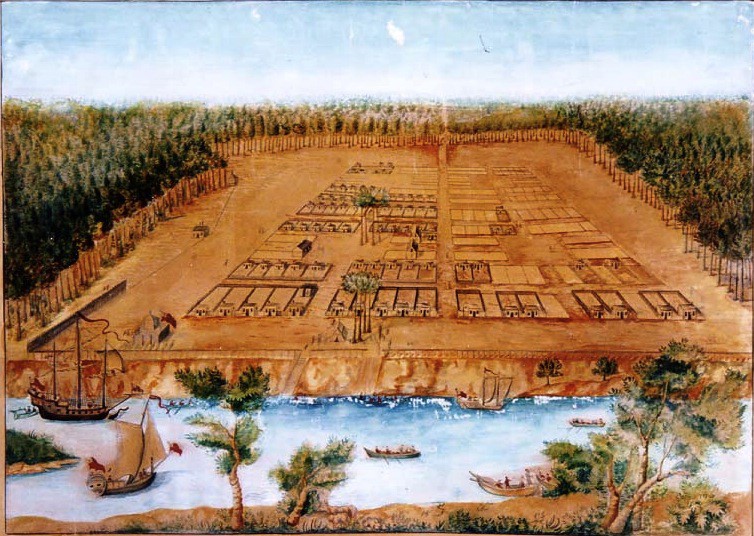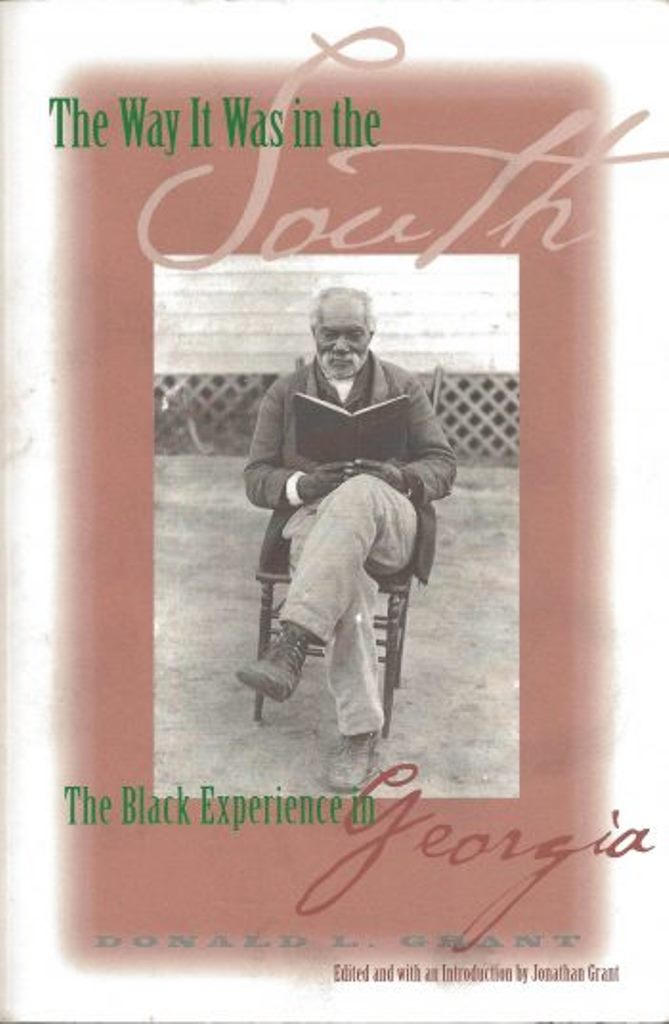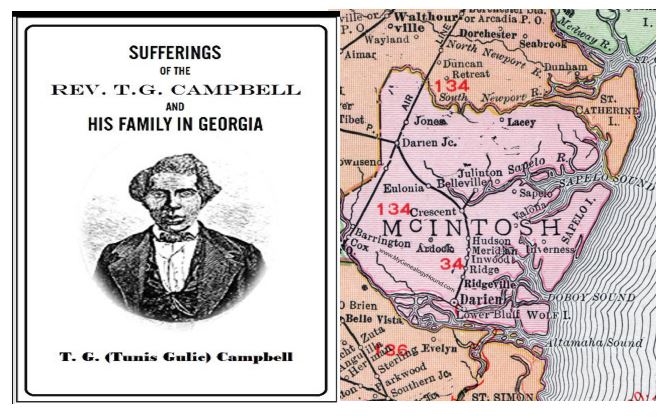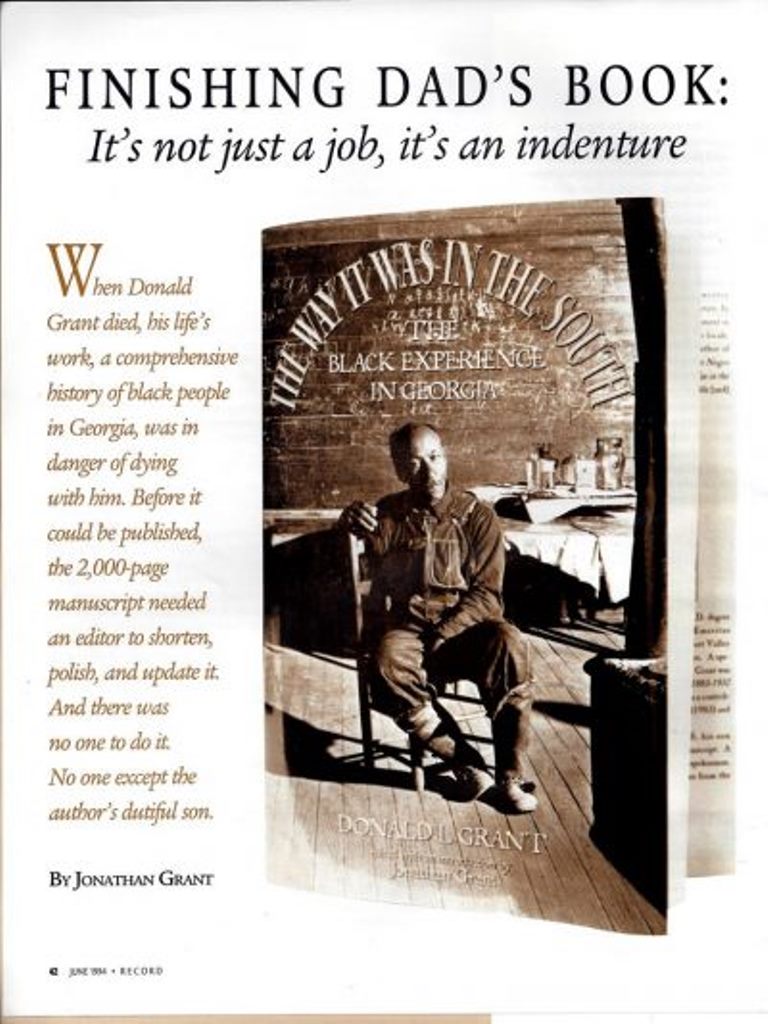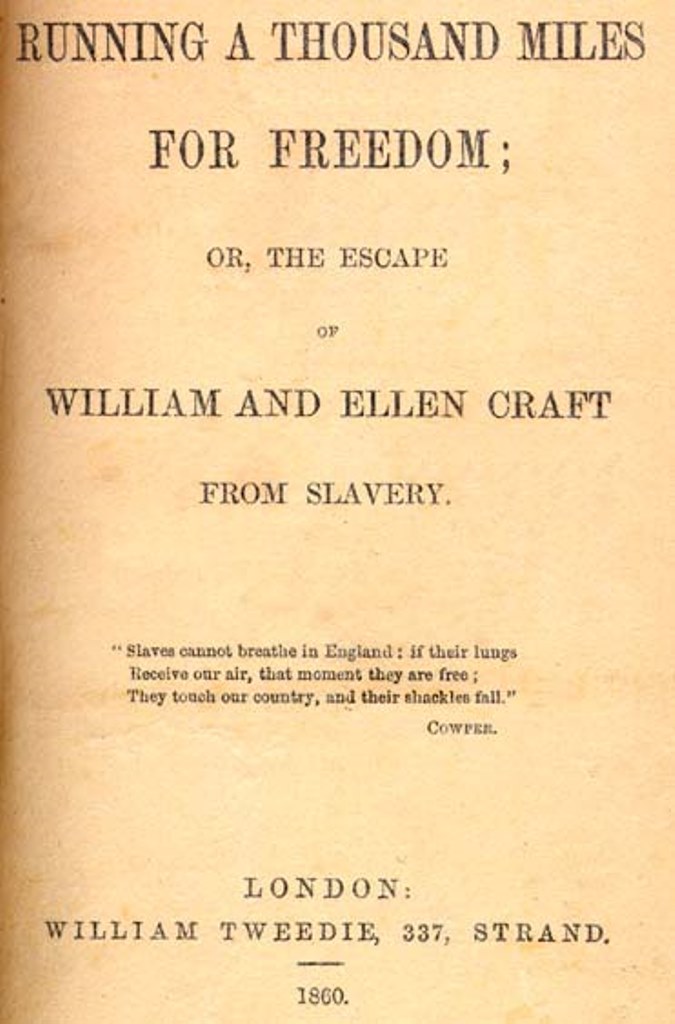Above: Early layout of Savannah This is an excerpt from The Way It Was in the South: The Black Experience in Georgia, by Donald L. Grant. Available from University of Georgia Press. About the book by Jonathan L. Grant At the age of 52, my father received his PhD in History from the University of Missouri and accepted a position at Fort Valley State College (now University), a public HBCU in Middle Georgia south of Macon. Throughout his tenure and beyond, he worked on what turned into a monumental history of Black Georgians. Unfortunately, he died in 1988 without getting it published. After his death, I reviewed his work. Recognizing its value, I editing the massive 1,500-page manuscript down to publishable length…
Tag: Black History
The Formation of Georgia: Beginnings of Evil, or An English Experiment Gone Awry
Above: Early layout of Savannah This is an excerpt from The Way It Was in the South: The Black Experience in Georgia, by Donald L. Grant. Available from University of Georgia Press. About the book At the age of 52, my father received his PhD in History from the University of Missouri and accepted a position at Fort Valley State College (now University), a public HBCU in Middle Georgia south of Macon. Throughout his tenure and beyond, he worked on what turned into a monumental history of Black Georgians. Unfortunately, he died in 1988 without getting it published. After his death, I reviewed his work. Recognizing its value, I editing the massive 1,500-page manuscript down to publishable length and extended the narrative’s…
Agony & uplift: For Georgia’s unvarnished racial history, this is the essential book
The Way It Was in the South: The Black Experience in Georgia by Donald L. Grant Edited with an Introduction by Jonathan Grant 624 pp., paper University of Georgia Press, 2001 Editors’ Choice — American Heritage Winner, Georgia “Author of the Year” Award Available wherever books are sold, or from the University of Georgia Press. Read about the effort to complete my late father’s life’s work This readable, fast-paced account covers 450 years of Georgia’s African-American experience. Solidly researched and documented, The Way It Was in the South sets the record straight on the progress of blacks and the contributions they made to the state — and the solid wall of white resistance they encountered nearly every step of the way.…
Take that, Scarlett O’Hara: The tale of Tunis Campbell is the true story of Georgia Reconstruction
Tunis G. Campbell, Sr. Georgia Black Reconstruction Leader By Jonathan Grant @Brambleman In 1861, a 49-year-old black abolitionist named Tunis G. Campbell, Sr., walked into a recruiter’s office in New York City and attempted to enlist in the Union Army. Like all African-Americans in the war’s early stages, he was rejected as unfit on the basis of his race. Campbell, a well-educated restaurateur, baker, and published author, didn’t give up. He wrote a letter to President Lincoln outlining a self-improvement plan for freed slaves after the war. As a result, he was sent to Union-occupied Hilton Head, S.C., to work with General Rufus Saxton. In 1865, Campbell—a tall, imposing man who dressed formally and wore spectacles—was appointed military governor of five Georgia…
When my father died, I inherited a huge unfinished manuscript. The rest is history.
By Jonathan Grant @Brambleman The Way It Was in the South: The Black Experience in Georgia was honored as an Editor’s Choice by American Heritage magazine and named Georgia’s nonfiction “Book of the Year” in 1994. I accepted the award on my father’s behalf six years to the day after he died. The last narrative that Dad wrote for The Way It Was covered Hosea Williams’s 1987 marches in Forsyth County, Georgia, the all-white county infamous for its purge of more than 1,000 black residents 75 years previously. My new novel, Brambleman, is a fictional account of that purge–and people’s attempts to come to grips with it. It is very much a story about the burden of Southern history. The Way It Was has been…
Georgia’s most famous runaway slaves became famous abolitionists
By Jonathan Grant @Brambleman I remain appalled at the “content” (or rather, the lack thereof) taught in Georgia’s 8th grade classrooms about the state’s history—and especially the short shrift its deep and rich African-American history receives. Of course, the same can be said for the nation’s classrooms during Black History Month. (Why February? Comedian Chris Rock once said, “Because it’s the shortest month.”) There would be no need for such a thing as Black History Month if African Americans’ story had been told properly and effectively all along, but that didn’t—and hasn’t happened—so here we are. Well, here’s something. When I worked on my father’s book, this story—which I’d never heard before—jumped off the page at me. I was so enthralled by…

